The last road in China
By: By Erik Nilsson

The last road in China
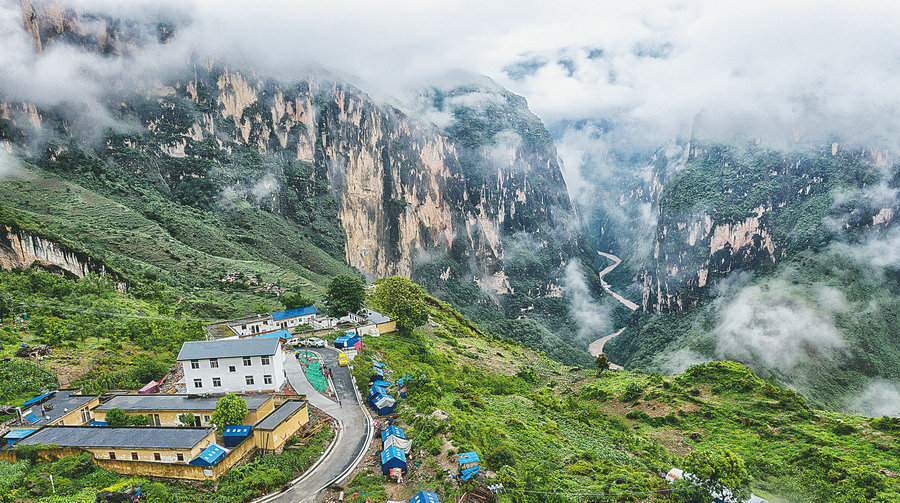 Abuluoha became China's final village to connect to the country's paved road system last summer. [Photo by Yin Gang/For China Daily]
Abuluoha became China's final village to connect to the country's paved road system last summer. [Photo by Yin Gang/For China Daily] Traveling outside of Abuluoha often meant ripped pants. That's because the only way out of the village in Butuo county in Sichuan province's Liangshan Yi autonomous prefecture was a precarious mountain path of loose stones that would cascade down the slopes with every step.
And villagers, likewise, would also often tumble down the sometimes 90-degree slopes.
The perilous trip took eight hours each way.
Villagers' surplus walnuts-otherwise a valuable crop-would rot since they couldn't transport them outside to sell. Farmers instead lived off subsistence agriculture, mostly eating coarse corn that would elsewhere be reserved for animal feed, since it could grow in the rocky slopes' generally infertile soil.
"If there was a drought, there was no corn. We went hungry," village chief Jilie Ziri recalls.
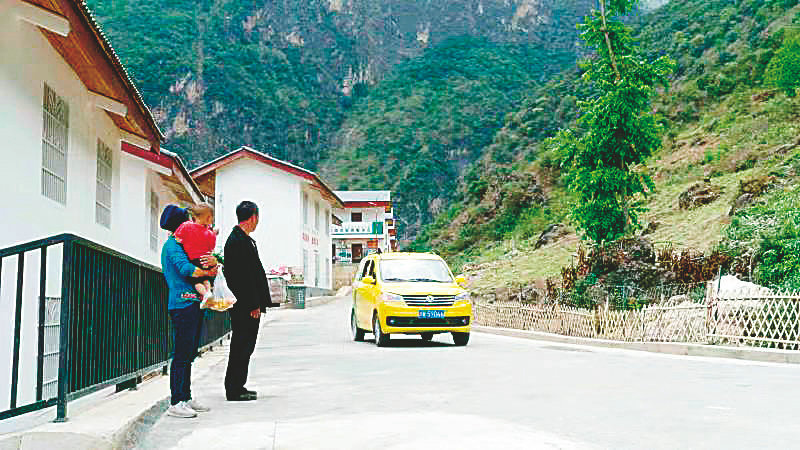 Some villagers have bought cars and work as drivers since the road was paved. [Photo by Erik Nilsson/China Daily]
Some villagers have bought cars and work as drivers since the road was paved. [Photo by Erik Nilsson/China Daily] Abuluoha also didn't have running water in the early 2000s. So, a scarcity of precipitation caused problems that extended beyond arid cropland.
"Lamp oil was precious before we got electricity in 2013," Jilie Ziri says.
"That's because nobody who went to the nearest town carried more than they absolutely needed back to the village. And sometimes they couldn't even carry that."
That changed in June of 2020, when a 3.8-kilometer road was completed, and Abuluoha became China's final village to connect to the road system. It takes just 15 minutes to drive out of the village and about two hours of jackknifing up and down serrated peaks to reach the nearest town.
Abuluoha translates from the Yi language as "a place off the beaten path". But it no longer lives up to this moniker.
The ethnic Yi settlement of 65 households, comprising 253 people, also brought the final 29 households of 187 people out of extreme poverty last year.
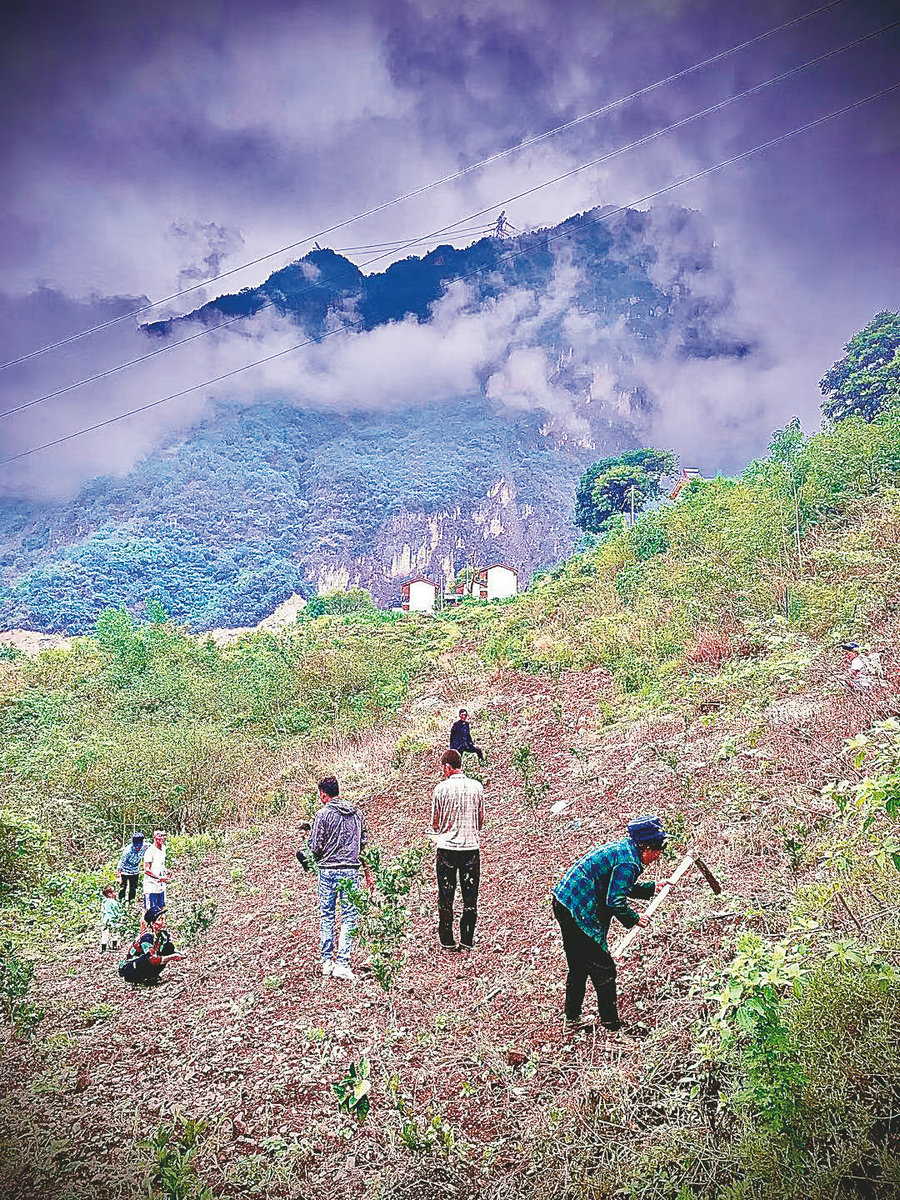 The new road enables farmers in the remote and mountainous village in Sichuan province to cultivate oranges and mangoes to sell to the outside world. [Photo by Erik Nilsson/China Daily]
The new road enables farmers in the remote and mountainous village in Sichuan province to cultivate oranges and mangoes to sell to the outside world. [Photo by Erik Nilsson/China Daily] The most challenging part of constructing the road was boring two tunnels, around 270 and 360 meters long, respectively, through the mountains.
Two workers died during the construction, when their digger-which had been flown in, dangling from a Mil Mi-26 helicopter-tumbled down a slope during a landslide. The vehicle can still be seen, partly buried, partly perched on a thorn-shaped crag.
The road also required the construction of a bridge spanning the river next to the village, which farmers previously crossed using ropeways, sometimes with goats and chickens tied to their bodies.
"Villagers were skeptical when they heard about the plans to build the road. They didn't believe it was possible, and they'd lived in such isolation for so long, they couldn't imagine living any other way," Jilie Ziri recalls.
Behind him, farmers shovel sheep manure around the trunks of orange and mango saplings-high-priced cash crops local farmers hope to use to cultivate new prosperity when they mature in two years, now that they can sell them outside.
"People were in disbelief when they saw the helicopter fly construction vehicles in," Jilie Ziri says.
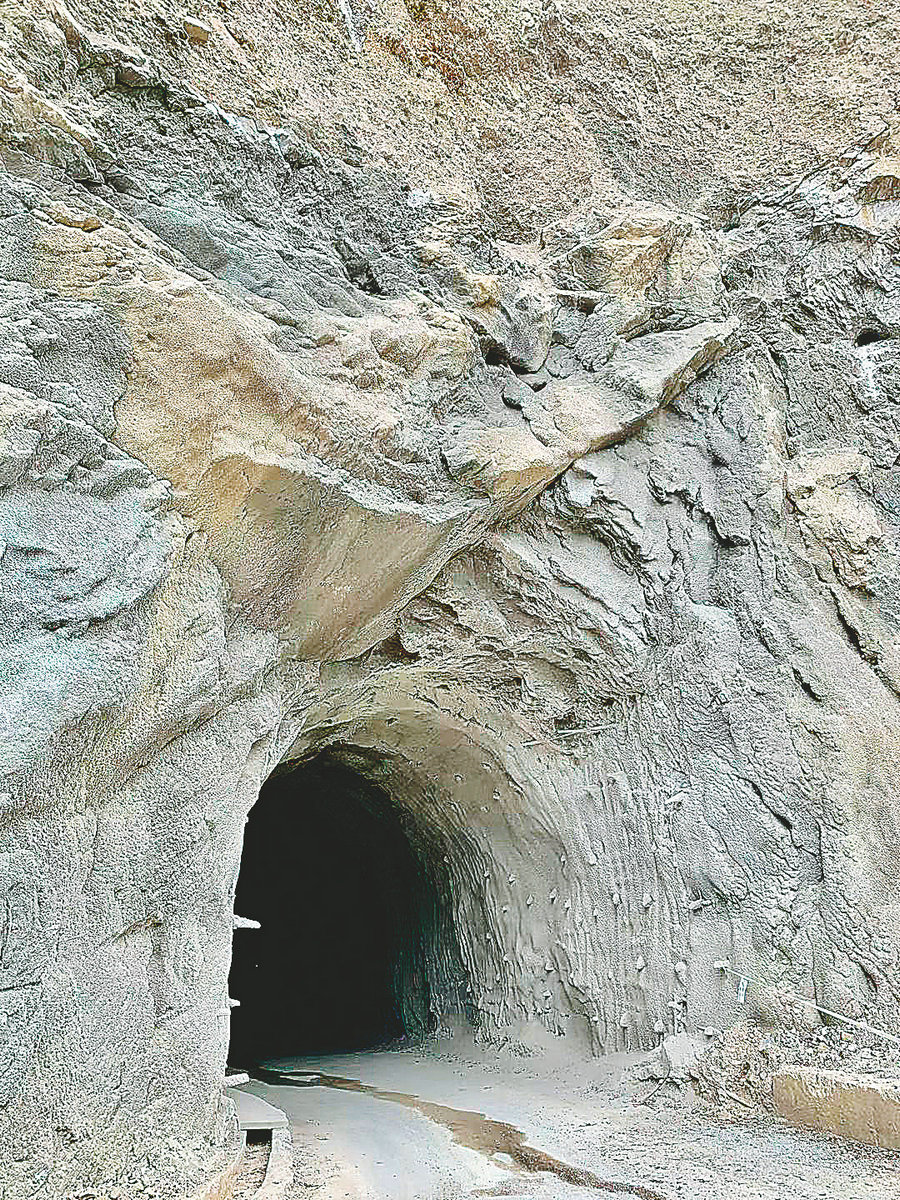 The most difficult part of building the road was boring two tunnels through mountains near the village. [Photo by Erik Nilsson/China Daily]
The most difficult part of building the road was boring two tunnels through mountains near the village. [Photo by Erik Nilsson/China Daily] The 26-year-old chief is the village's first university graduate.
"Local people used to have children at a young age," he says. "Most kids didn't study until the school was built in the village in 2005."
Some of the first-graders were as old as 16 that year.
"As kids, when we'd climb the mountain, we just had to wipe our tears away and keep going," Jilie Ziri recalls.
He decided to return to the village to apply his higher education to developing his hometown.
The settlement hopes to develop tourism as an eco-village, using its status as China's last settlement to connect to the road system to conjure a unique appeal among travelers. It has built two small exhibition halls showing the process of how the road was built and the transformations it has brought, in buildings constructed according to traditional Yi architecture.
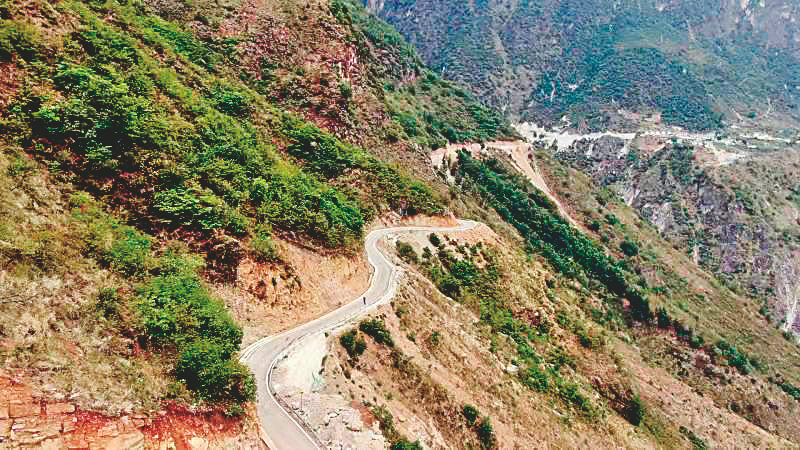 The road clings to sheer mountainsides. [Photo by Erik Nilsson/China Daily]
The road clings to sheer mountainsides. [Photo by Erik Nilsson/China Daily] The community is also preparing to open its first nongjiale, or rural guesthouse, for tourists.
The motorway has, indeed, proved to be an engine of prosperity.
Qiesha Niuzinan, 30, bought a van to drive people in and out of the settlement. Qiesha Zixia, 38, bought a motorized tricycle to transport goods to and from Abuluoha. Ada Dangge, 46, opened a small shop. And Qiesha Secong, 32, sold his horse and bought a motorcycle.
Residents agree the road truly has paved the way for Abuluoha's residents to drive development and steer their own destinies
.
BUZZ NOTE: Comments are subject to the Discovery Group RED RULES which may be accessed by clicking on the Discovery Group avatar at the top right of this page.

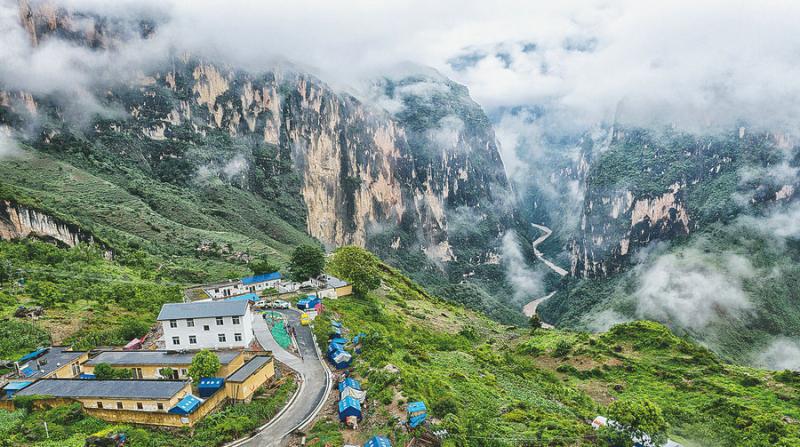


China is not all skyscrapers, super-fast trains and ancient culture. This is an example of how China has pulled all of its people out of absolute poverty - in this case it was just by building a road and training its people to grow and market cash crops. This has now happened all over China.
Obviously this is the last thing anyone is interested in.
Even though there's probably not going to be a reason for doing so, but because I'm going to bed now and will not be available to moderate all day tomorrow, I'm locking this article.
Now that I am available again, this seed is unlocked, although I assume that there is little interest among the NTers who might normally call it just more Chinese lies and propaganda, I see it as one of the ways in which the CPC has been able to eradicate abject poverty among the Chinese people.
You don't want to swerve to far to the side on that road.
I've been in vehicles that have been driven along roads like that here, and the way they drove scared the sh*t out of me.
This is a good thing
A very interesting seed, Buzz. And the photos add to the story by showing the vast terrain that the road encompasses. The photo showing one of the tunnels that was bored through the mountain depicts amount of energy involved in the boring process.
The road provided better way of life for the local villagers who would have a better way to get their farmed goods to the world market in a more timely manner, and for some villagers to provide transportation for the local residents, while allowing the surrounding countryside to still maintain its beauty.
A very well planned project that provided excellent results all around.
Thank you very much for sharing this very interesting and enlightening story, Buzz.